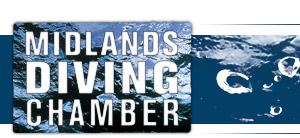
The Honourable Robert Boyle was an Irish Natural Philosopher (chemist, physicist, and inventor), noted for his work in physics and
chemistry. Born to the richest man in Great Britain and receiving a priveleged education at Eton and throughout Europe, Boyle is regarded today as the
first modern chemist.

Robert Boyle made important contributions to both physics and chemistry and is best known for a law of physics experienced by all divers describing the
behaviour of an ideal gas. Boyles Law appears in an appendix his work "New Experiments Physio-Mechanical, Touching the Spring of the air and its Effects"
(1660).
Boyle's law states that at constant temperature, the absolute pressure and the volume of gas are inversely proportional. As pressure increases,
the gas volume is reduced; as pressure is reduced, the gas volume increases. This law, especially when combined with the work of Gay-Lussac and Charles
produce the General Gas Law; invaluable to Diving and Recompression Chamber operations:

This 1660 text was the result of three years of experiments conducted with the help of scientist Robert Hooke. Using an air pump designed by Hooke,
Boyle was able to discover a series of important facts, such as sound not travelling in a vacuum, a flame requiring air and investigating the
"elastic properties of air".
Boyle also first described the effects of Decompression Illness when in 1670 he used the vacuum pump to decompress a snake
(undoubtedly somewhat rapidly) and reported: "I once observed a viper furiously tortured in our exhausted receiver… that had
manifestly a conspicuous bubble moving to and fro in the waterish humour of one of its eyes."
Edmond Halley and the history of Hyperbaric Medicine » | 


